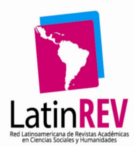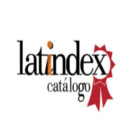Pedagogical authority as a practice of practice of relationship. Problems with the ways of thinking a common living
Abstract
We start this article with a question: How to structure (pedagogical) relations of authority today? This subject leads us to ponder the ways of constructing relations of care and support subjective processes at the same time that we promote living together, particularly in the education area. We specifically address two questions: In which sense do we think about the ways of constructing relations of authority? How do we think them? Here, we propose a distinction between “thinking” as the way to reach the truth and the perspective of considering it as an action with a creative power. Which are the conditions of (im)possibility of relating? Focusing on the notion of dispositif (Foucault, 1991), we address the issue of the public as an instance of authority. We propose to discuss possible answers to the central question; without subscribing to "technical" perspective to attempt to problematize authority, highlighting its relational quality as a practice of relationship situated in/between dispositifs. Throughout the article, we explore “thinking in the middle of”, thinking as a perspective that allows us to follow the movement of the problem rather than capturing it in solutions.Downloads
References
Bolívar, A. (2014). Liderazgo educativo y desarrollo profesional docente: Una revisión internacional. Ulloa, J. y Rodríguez, S. (eds.), Liderazgo escolar y desarrollo profesional de docentes: Aportes para la mejora de la escuela. Universidad de Concepción / RIL.
Bozzolo, R. (2015). Nuevas armas para pensar los procesos de subjetivación. En línea: <http://www.pablohupert.com.ar/index.php/nuevas-armas-para-pensar-los-procesos-de-subjetivacion/> (Consulta: 21-06-2025).
Corea, C. y Lewkowicz, I. (2008). Pedagogía del aburrido: Escuelas destituidas, familias perplejas. Paidós.
Deleuze, G. y Guattari, F. (1993).¿Qué es la filosofía? Anagrama.
Deleuze, G. (2023). Cine IV. Las imágenes del pensamiento. Automatismo, semiótica y actos de fabulación. Cactus.
Diker, G. (2004). Y el debate continúa. ¿Por qué hablar de transmisión? Frigerio, G. y Diker, G. (2004) (comps.), La transmisión en las sociedades, las instituciones, los sujetos. Un concepto de la educación en la acción. Noveduc.
Diker, G. (2024). Prólogo. Baichman, A. y Stoppani, N. (comps.), Educación y políticas para lo común. Interrogantes sobre lo impostergable. CCC Floreal Gorini.
Frigerio, G., Korinfeld, D. y Rodríguez, C. (coords.) (2017). Trabajar en instituciones: Los oficios del lazo. Noveduc.
Frigerio, G. (2017). Oficios del lazo: Mapas de asociaciones e ideas sueltas. Frigerio, G., Korinfeld, D. y Rodríguez, C. (coords.), Trabajar en instituciones: Los oficios del lazo. Noveduc.
Foucault, M. (1991). El juego de Michel Foucault. Saber y verdad, trads. Julia Varela y Fernando Álvarez-Uría. La Piqueta.
Galazzi, L. (2015). Modelos teóricos para conceptualizar la enseñanza: Algunas consideraciones críticas acerca del “triángulo pedagógico”. Paideia: Revista de Filosofía y Didáctica Filosófica, vol. 1, núm. 102.
Galazzi, L. (2017). Del encierro al control: Enclaves (re)productivos de la escuela contemporánea. Teseo.
Greco, M. B. (2007). La autoridad (pedagógica) en cuestión: Una crítica al concepto de autoridad en tiempos de transformación. Homo Sapiens.
Grunberg, D. (2024). Notas para una escritura imperativa. Del hacer y del pensar. Andamios para los oficios del lazo. La Hendija.
Haraway, D. (2019). Seguir con el problema. Consonni.
Korinfeld, D. (2005). Psicopatologización de la infancia y la adolescencia. Langer, E., Alcántara, A. et al., Sexualidad, salud y derechos. Noveduc.
Lewkowicz, I. (2006). Pensar sin Estado. La subjetividad en la era de la fluidez. Paidós.
Lewkowicz, I. (2024). ¿Qué hace el pensamiento? Red.
Najmanovich, D. (2019). Complejidades del saber. Noveduc.
Prol, G. (2011). Algunas puntuaciones conceptuales para pensar la psicología del desarrollo. Xpsicopedagogía [Sitio web]. En línea: <https://www.xpsicopedagogia.com.ar/puntuaciones-conceptuales-pensar-psicologia-desarrollo-prol-1.html> (Consulta: 21-06-2025).
Rodríguez, C. (2017). Variaciones del pensar en oficios e instituciones. Frigerio, G., Korinfeld, D. y Rodríguez, C. (comps.), Las instituciones: Saberes en acción. Aportes para un pensamiento clínico. Los oficios del lazo, (vol. 3). Noveduc.
Simons, M. y Masschelein, J.(2014). Defensa de la escuela. Una cuestión pública. Miño y Dávila.











